This post will help you understand the Turn off KMS Client Online AVS Validation Policy using Intune. We are going to use Configuration Profiles of Intune to implement this policy. Our main purpose here is to help you acquire knowledge of how to Allow Turn off the KMS Client Online AVS Validation Policy using Intune.
Allow Turn off KMS Client Online AVS Validation Policy Using Intune is a policy enabling of which prevents the computer from sending data to Microsoft regarding its activation state. We are going to implement his policy using Intune.
Microsoft’s Key Management Service (KMS) is a licensing activation approach that involves configuring a local server to manage software licenses. The KMS server initially connects to Microsoft for activating the KMS service.
Afterwards, devices within the network can activate their Microsoft Windows OS and/or Microsoft Office through the KMS server, rather than establishing direct connections to Microsoft. This policy option allows you to choose not to transmit activation data from KMS clients to Microsoft automatically.
Despite the fact that the KMS licensing approach doesn’t mandate KMS clients to establish direct connections with Microsoft, they still automatically transmit activation state data to Microsoft. Taking measures to prevent the transmission of this information can be beneficial in high-security environments, as it addresses privacy concerns.

Windows CSP Details DisallowKMSClientOnlineAVSValidation
We will see Windows CSP Details for this Policy setting DisallowKMSClientOnlineAVSValidation. While the KMS licensing method doesn’t force KMS clients to connect to Microsoft directly, it’s important to note that these clients still automatically share activation state data with Microsoft. Implementing measures to prevent the automatic transmission of this data can be particularly valuable in high-security environments, as it serves to mitigate privacy concerns and enhances overall data protection.
CSP URI – ./Device/Vendor/MSFT/Policy/Config/Licensing/DisallowKMSClientOnlineAVSValidation

Turn off KMS Client Online AVS Validation Policy using Intune
To Allow Turn off KMS Client Online AVS Validation Policy Using Intune, follow the steps stated below:
- Sign in to the Intune Admin Center portal https://intune.microsoft.com/.
- Select Devices > Windows > Configuration profiles > Create a profile.
In Create Profile, I select Windows 10 and later in Platform and select Profile Type as Settings catalog. Click on the Create button.
| Platform | Profile Type |
|---|---|
| Windows 10 and later | Settings Catalog |
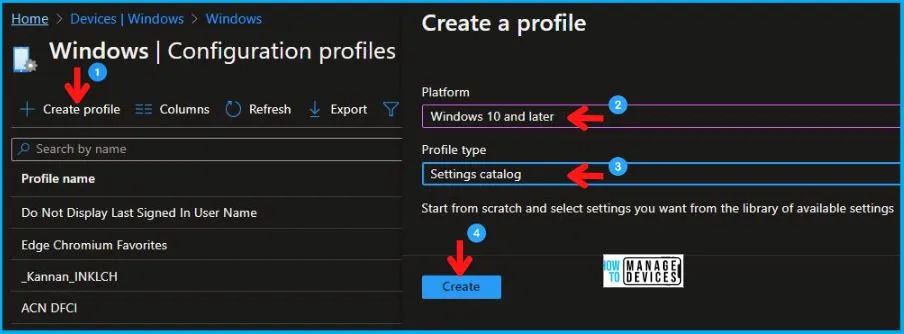
On the Basics tab pane, I provide a name for the policy as “Turn off KMS Client Online AVS Validation Policy.” Optionally, if you want, you can enter a policy description and proceed by selecting “Next.”
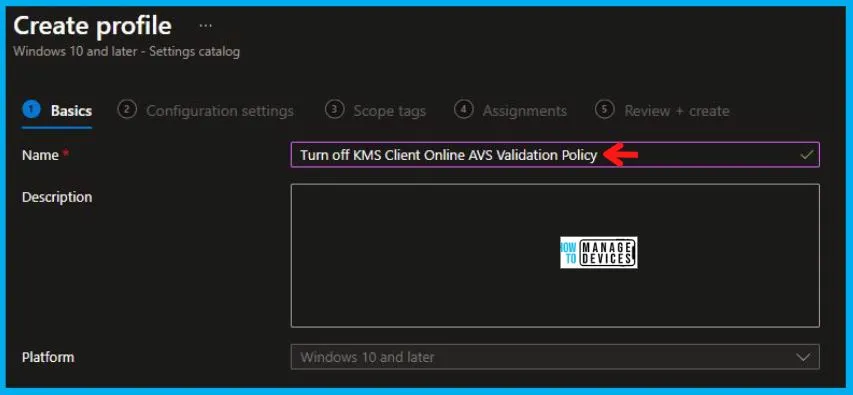
Now in Configuration Settings, click Add Settings to browse or search the catalog for the settings I want to configure.
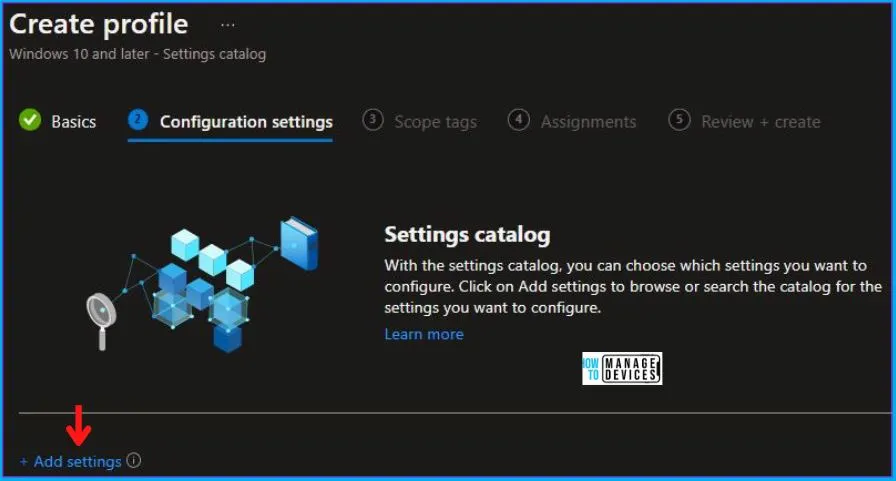
In the Settings Picker windows, I searched for the keyword KMS, I found the category Licensing and selected this.
When I select that option as stated above, I see the sub-category, Disallow KMS Client Online AVS Validation. After selecting that, click the cross mark at the right-hand corner, as shown below.
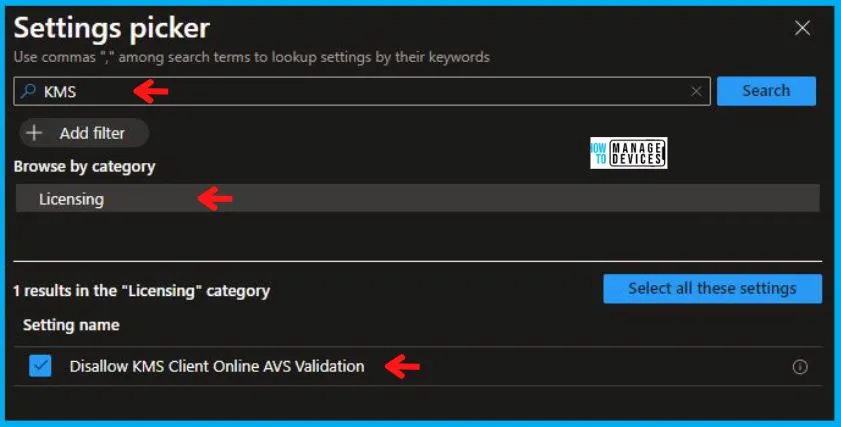
I kept the Disallow KMS Client Online AVS Validation as Allow in the Licensing and clicked on Next to continue.
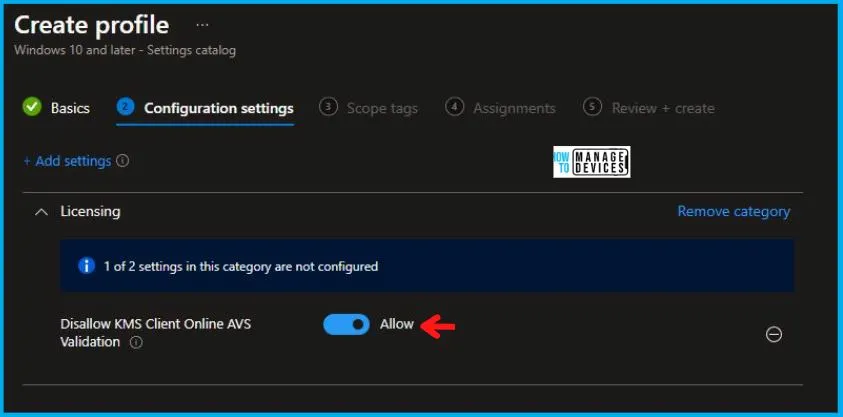
Using Scope tags, you can assign a tag to filter the profile to specific IT groups. One can add scope tags (if required) and click Next to continue. Now in Assignments, in Included Groups, you need to click on Add Groups, choose Select Groups to include one or more groups, and click Next to continue.
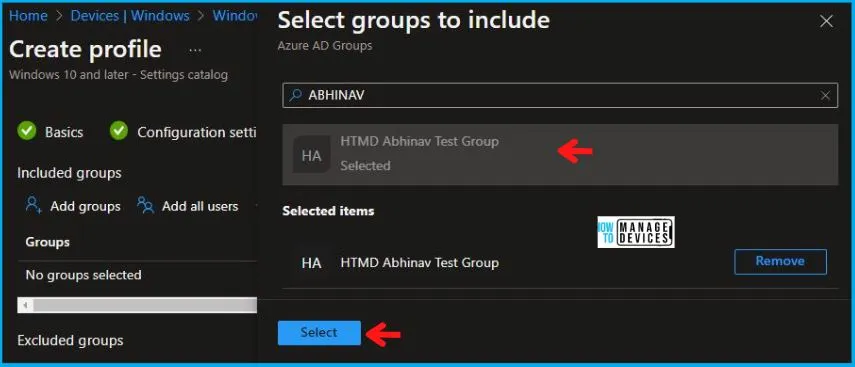
In the Review + Create tab, I review settings. After clicking on Create, changes are saved, and the profile is assigned.
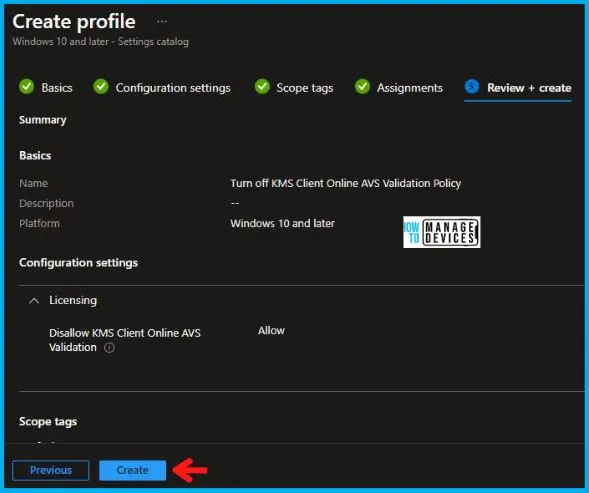
Upon successfully creating the “Turn off KMS Client Online AVS Validation Policy,“ notification will appear in the top right-hand corner, confirming the action. You can also verify the policy’s existence by navigating to the Configuration Profiles list, where it will be prominently displayed.
Your groups will receive your profile settings when the devices check in with the Intune service. The Policy applies to the device.
Intune Report for Turn off KMS Client Online AVS Validation Policy
From Intune Portal, you can view the Intune settings catalog profile report, which provides an overview of device configuration policies and deployment status.
To track the assignment of the policy, you need to select the relevant policy from the Configuration Profiles list. Reviewing the device and user check-in status lets you determine if the policy has been successfully applied. If you require more detailed information, you can click on “View Report” to access additional insights.
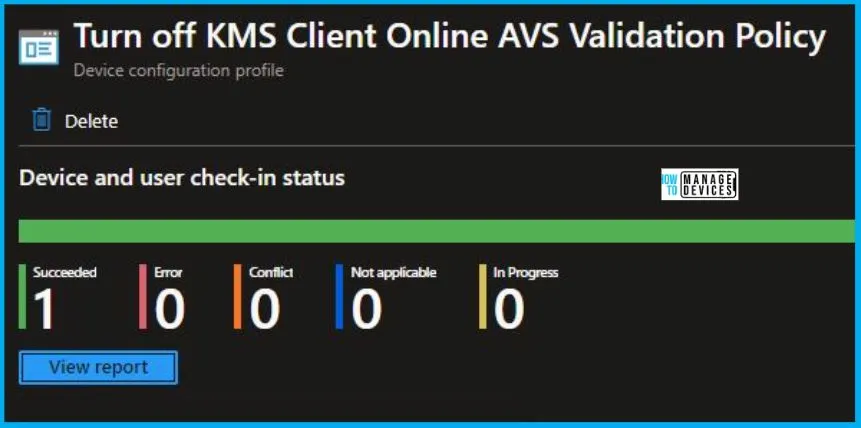
Intune MDM Event Log
To verify the successful implementation of String or integer policies on Windows 10 or 11 devices through Intune, you can leverage event IDs 813 and 814. These event IDs provide valuable insights into the application status of the policy as well as the specific value assigned to the policy on those devices. In the case of this particular policy, the value is an Integer and is linked to the event ID 813.
By analyzing these event IDs, you can gain a clear understanding of the policy’s application status and the corresponding value associated with it on the devices in question.
To confirm this, you can check the Event log path – Applications and Services Logs – Microsoft – Windows – Devicemanagement-Enterprise-Diagnostics-Provider – Admin.
MDM PolicyManager: Set policy string, Policy: (DisallowKMSClientOnlineAVSValidation), Area: (Licensing), EnrollmentID requesting merge: (5B88AEF1-09E8-43BB-B144-7254ACBBDF3E), Current User: (Device), Int: (0x1), Enrollment Type: (0x6), Scope: (0x0).
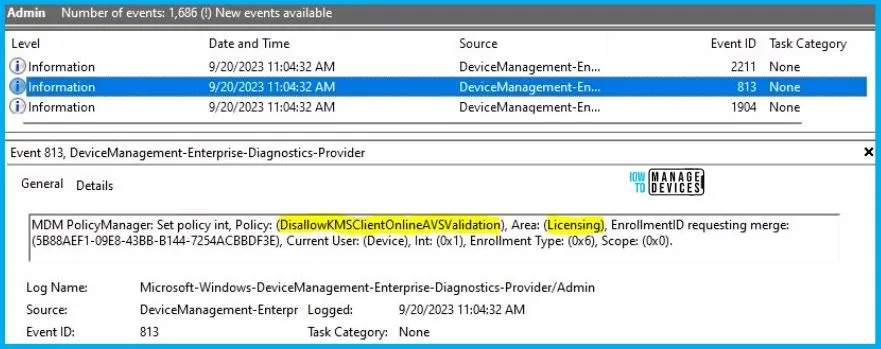
When I opened the above Event log, I found that the policy I have applied to the device has been successfully implemented. By reviewing the log entry shown in the above image, the Event Viewer, I came across essential information, including the Area and Enrollment ID. These details play a significant role in identifying the corresponding registry path. To locate the specific information, please consult the table provided below:
| Area | Policy | Integer | Scoped | Event ID |
|---|---|---|---|---|
| Licensing | DisallowKMSClientOnlineAVSValidation | Enabled | Device | 813 |
The details presented in the table above for the Turn off KMS Client Online AVS Validation Policy Using Intune can be employed to access the registry settings that hold the group policy configurations on a specific computer. To accomplish this, you can execute “REGEDIT.exe” on the target computer and navigate to the precise registry path where these settings are stored.
- Computer\HKEY_LOCAL_MACHINE\SOFTWARE\Microsoft\PolicyManager\providers\5B88AEF1-09E8-43BB-B144-7254ACBBDF3E\default\Device\Licensing
When you navigate the above path in the Registry Editor, you will find the registry key named
